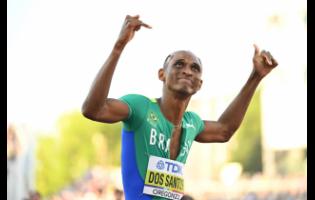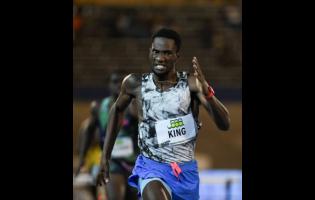Paris Olympics: Opening athlete parade on a river tops list of innovations
GENEVA (AP):
Exactly 100 years since the Olympics were last staged in Paris, and 128 years since its modern revival in Athens, the Summer Games can still deliver fresh looks for its 33rd edition.
Here is a look at the innovations the Paris Olympics will showcase:
OPENING CEREMONY
This historic first for any Summer Games will launch the Paris Olympics and can be its defining image: Thousands of athletes in a flotilla sailing westwards along the River Seine at sunset towards the Eiffel Tower on Friday, July 26.
The ambitious idea was to bring the tone-setting spectacle out of an expensively ticketed stadium and into the city, where many more people can see it.
A crowd of 320,000 people is expected on the riverbanks along the 6K route from Pont d'Austerlitz to Pont d'Iena.
Tickets will be free for about 220,000 invited and security-screened spectators watching from the upper riverbank.
About 100,000 paying spectators, including lavish hospitality packages, will watch from the lower riverside and around the Trocadero plaza -- where the parade will end looking across to the Eiffel Tower.
French President Emmanuel Macron has acknowledged the river-borne parade could be moved if the city is struck again by terrorists as it was in 2015. The closing ceremony on August 11 is scheduled in the Stade de France national arena after it hosts track and field in the final week.
GENDER PARITY
Paris was where women first competed at the Olympics -- in 1900 with 22 of the 997 athletes in competition.
Women competed in tennis and golf, plus as part of team events in sailing, croquet, and equestrianism.
Charlotte Cooper of Britain became the first female individual gold medallist by winning the tennis singles event.
This time, for the first time, women have an equal share with men of an entry quota that is now 10,500 athletes across 329 events.
"This is our contribution to a more gender-equal world," IOC President Thomas Bach has said.
That 2.2 per cent proportion of female athletes in 1900 had risen to 23 per cent at the 1984 Games in Los Angeles, where American Joan Benoit won the first women's Olympic marathon.
There were debuts in Los Angeles for rhythmic gymnastics and what was then called synchronised swimming. It is now artistic swimming and men will make their Olympic debut in the event in Paris.
As the total of female athletes approached 50 per cent, the IOC put pressure on Olympic teams that traditionally sent only men to complete. Saudi Arabia, Qatar and Brunei included female athletes for the first time at London in 2012.
It reached 48 per cent at the Tokyo Olympics, held in 2021, when teams were encouraged to select a man and a woman each to be flag bearers at the opening ceremony.
With gender parity on the field of play, a challenge for the IOC is to one day have a female president. Nine men have led the IOC since 1894.
The next presidential election is due in March 2025, and the Olympic body has only ever had one female candidate. In 2001, Anita DeFrantz, a bronze medallist in rowing for the United States at the 1976 Montreal Olympics, was eliminated first in a five-candidate contest won by Jacques Rogge.
PRIZE MONEY
In Paris, prize money will be paid to gold medallists directly from Olympic revenues in a controversial break with tradition.
Not by the IOC, however, which has clearly objected to the promise made in April by track and field's governing body World Athletics.
Each of the 48 gold medals in track and field in Paris carries a US$50,000 prize. For Los Angeles in 2028, World Athletics also wants to pay prize money for silver and bronze.
Prize money has become routine for Olympic athletes when paid by state governments and national Olympic bodies.
France will pay its gold medallists around $85,000 each. The US Olympic and Paralympic Committee runs 'Project Gold', which gives $37,500 for gold, $22,500 for silver, and $15,000 for bronze.
However, the $2.4-million pledge announced by World Athletics President Sebastian Coe will come directly from the sport's share of the IOC's multibillion-dollar income from broadcasting and sponsor deals.
In Tokyo, the IOC set aside about $540 million for the collective group of Summer Games sports bodies, known as ASOIF, to share among its members. Track is a top-tier Olympic sport and so got the highest payment, almost $39.5 million.






































